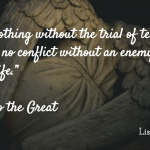If you’ve hung around social media circles lately, it’s likely that you’ve encountered one: a troll.
These mythical creatures have become so prolific that they even have their own wikipedia entry:
In Internet slang, a troll (/ˈtroʊl/, /ˈtrɒl/) is a person who sows discord on the Internet by starting arguments or upsetting people,[1] by posting inflammatory,[2] extraneous, or off-topic messages in an online community (such as a forum, chat room, or blog), either accidentally[3][4] or with the deliberate intent of provoking readers into an emotionalresponse[5] or of otherwise disrupting normal on-topic discussion.[6]
While this sense of the word troll and its associated verb trolling are associated with Internet discourse, media attention in recent years has made such labels subjective, with trolling also used to describe intentionally provocative actions and harassment outside of an online context. For example, mass media has used troll to describe “a person who defaces Internet tribute sites with the aim of causing grief to families.”
In Catholic social media circles, I profoundly believe that trolls can actually lead us to sin. We toil venues like Twitter, Instagram or Vine with the stated objective of preaching the good news of the Gospel, but all too often are lead away from Christ by giving trolls treatment that is anything but Christian.
It’s probably sort of crazy for me to even mention — or have the audacity to try to blog about — troll management. I liken this to driving down the 405 freeway in LA and remarking that there is no traffic. That’s sure to induce a sig alert every time!
I run the risk today because the topic is fresh on my mind. I just finished delivering a social media webinar for Our Sunday Visitor on the topic of parishes using these tools. When I finished, I found I’d received a Twitter direct message from a friend alerting me to a particularly nasty troll and asking why I was following the person. In typical Lisa fashion, I had to admit that I had no idea I was following the troll in question, who was subsequently promptly unfollowed.
But it started me thinking about my approach to trolls.
Remarkably, I don’t think I actually encounter them all that often. What do they say, “Ignorance is bliss?” I tend to be so strategic in my use of these venues that I don’t give much time or energy to your garden variety troll. And I’ve definitely learned not to engage them, except in prayer. I’ve broken that personal rule in a few situations, but as a rule it’s one of my most consistent troll management tactics.
In general, when encountering a particularly nasty personality in social media I:
- Note their presence
- Read what they are saying (unless it becomes overly abusive, in which case they are quickly blocked)
- Meet their trolly wisdom with silence
- Pray silently and briefly for the troll in question
Perhaps I need to add “check to see if you’re friends with/following the troll” to this procedure. But that would mean clicking on their profile and being subjected to more of their abuse. I’ll have to think about that…
A question for you: What’s your “troll management policy”? Do you often encounter abusive or negative personalities in social media?












